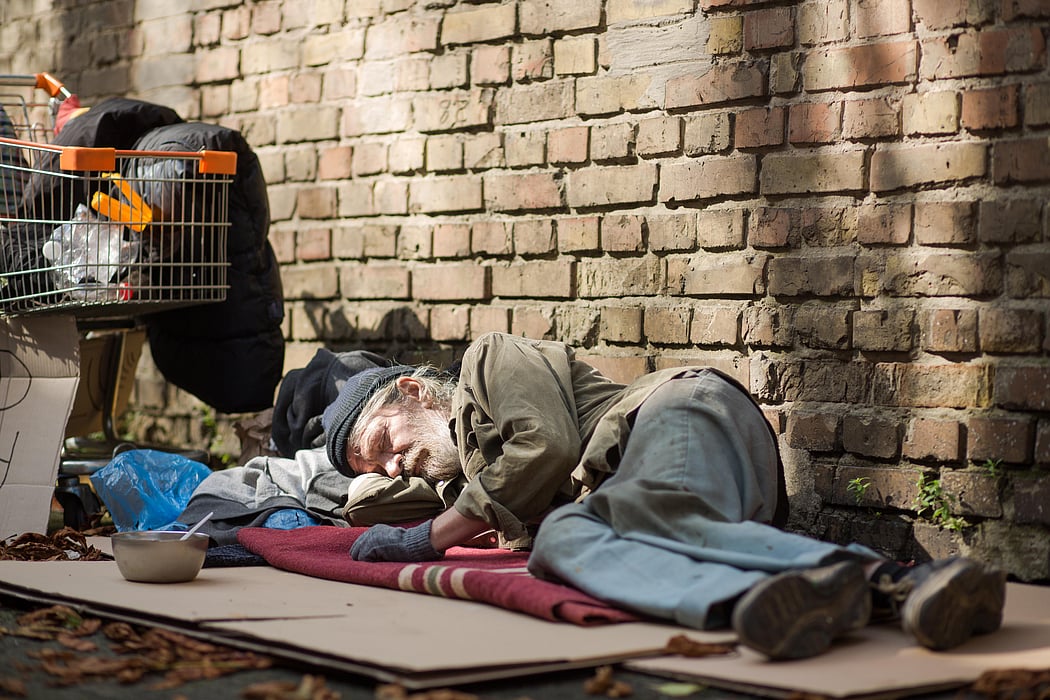Homelessness Can More Than Double Odds of Fatal COVID-19

TUESDAY, Dec. 27, 2022 (HealthDay News) -- Homeless people in California's largest county are more than twice as likely to die from COVID-19 as the general population, a new study finds.
Researchers from the county, UCLA and the University of Southern California found that homeless people in Los Angeles County who contracted the virus were 2.35 times more likely to die, suggesting that homelessness is a unique risk factor for COVID-related death.
They said the likely cause is the vulnerability brought on by accelerated aging among the homeless.
“This work shows that COVID-19, like many infectious diseases, is what we call a ‘housing-sensitive condition,’ ” said co-author Benjamin Henwood, a professor at USC's Suzanne Dworak-Peck School of Social Work. “More aggressive housing and homelessness prevention interventions are needed to mitigate these conditions.”
Between Jan. 1, 2020, and Nov. 1, 2021, more than 256 homeless people died of COVID-related causes in L.A. County, according to the study.
The risk facing homeless people was seen across many groups.
“[It] was observed across all age groups, among male individuals and female individuals, and among Black, Hispanic and white subpopulations,” said study co-author Randall Kuhn, a professor of community health sciences at the UCLA Fielding School of Public Health.
L.A. has the nation's largest unsheltered homeless population. Though efforts were made to place people in protective housing programs, reduce shelter density and prioritize vaccinations, the pandemic still had worse impact on this group, the researchers said.
Surveillance teams from the LA County Department of Public Health tallied the deaths among 52,000 homeless people. Data came from clinician reports, death certificates, medical examiner reports and vital records.
Confirmed COVID deaths included those with a positive COVID test and either COVID listed on a death certificate as a cause of death or a death within a certain period after a confirmed COVID test — 60 days of the first test or up to 90 days if the patient was intubated.
Sudden or unexpected deaths due to violence or drug overdose were excluded.
In all, there were 50 deaths among women; 205 among men; and one in a person who did not fit either category. Most occurred between December 2020 and February 2021, during the Delta variant surge. Of those who died, there were 62 were Black individuals; 122 Hispanic people; and 55 white people.
“While homelessness dramatically increases the risks for each group, we can’t ignore how high the risks already were for housed Black and Hispanic populations,” said Natalie Porter, who led the study as a graduate student in public health at UCLA.
COVID outcomes may have been shaped by how people became homeless, researchers said. For Black people, this may have been structural factors such as lack of low-cost housing and high poverty rates. For white people, it may have been individual factors, including psychiatric conditions and substance abuse.
The new study, which was published recently in the journal JAMA Network Open, is just the latest collaboration by this group investigating the effects of homelessness on health.
“COVID-19 is a disease that feeds on older populations, but age is just a number,” Kuhn said. “We have long thought that prolonged experience of homelessness accelerates the normal aging of the body by perhaps 10 to 15 years. Unhoused people who are age 50-54 had about the same [premature death] risks as 65-69 year olds in the general population. This is deeply troubling, especially in light of a possible new wave of COVID-19 cases.”
More information
Visit the American Public Health Association for more on COVID and health inequities.
SOURCE: University of California, Los Angeles
Thestudy findings were published in J````````````````````````````````AMA Network Open this month.More informationNational Low Income Housing Coalition has more on COVID-19 and homelessness
Related Posts
Effect of HF-Spinal Cord Stimulation on Chronic Pain Varies by Sex
TUESDAY, May 3, 2022 (HealthDay News) -- High-frequency spinal cord stimulation...
Think You’re Not a ‘Helicopter’ Parent? New Poll Finds Many Are
MONDAY, Oct. 16, 2023 (HealthDay News) -- As kids grow up, their desire to...
Can AI Predict Cardiac Arrest Better Than a Doctor Can?
MONDAY, April 11, 2022 (HealthDay News) -- A new artificial intelligence...
Social Isolation May Be Independent Risk Factor for Dementia
FRIDAY, June 10, 2022 (HealthDay News) -- Social isolation seems to be an...
